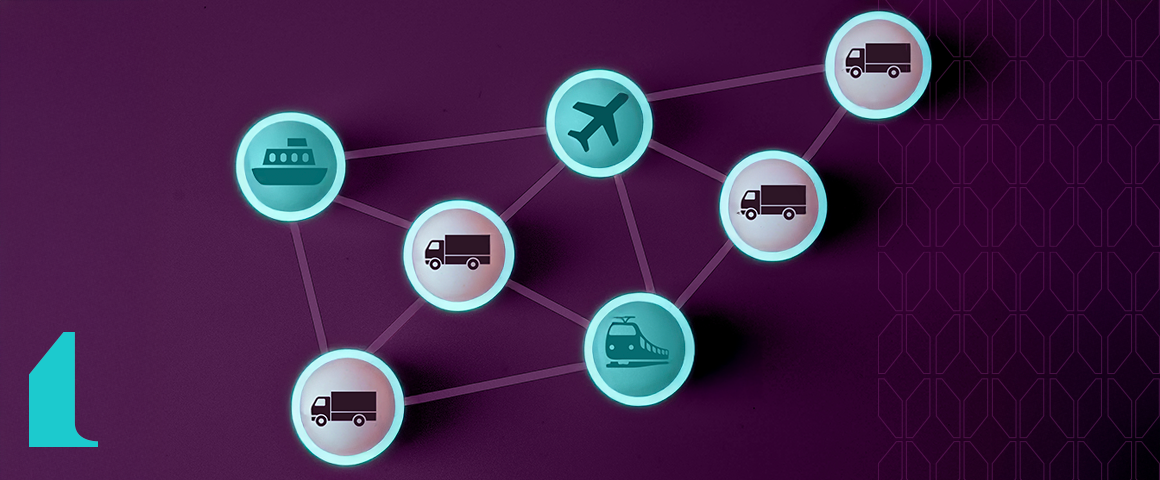SaaS Contract Management Software: A Comprehensive Overview
With the SaaS industry expanding by approximately 500% in the past seven years, SaaS contracts have become the lifeblood of modern business operations. These agreements govern everything from pricing and service levels to data privacy and security.
Poorly managed contracts can lead to significant financial losses for organizations. According to research by World Commerce & Contracting (WCC), companies experience an average of 9.2% value leakage due to ineffective contract management, resulting in missed renewal dates, costly disputes, and even data breaches. By mastering SaaS contract management, you can mitigate these risks, optimize costs, and ensure compliance.
This guide will equip you with the knowledge and strategies to transform contract management from a daunting task into a strategic advantage. Let’s dive in and explore how to create robust agreements, streamline negotiations, and harness the power of SaaS contract management software.
What is SaaS Contract Management?
SaaS contract management involves the administration and oversight of agreements between software providers and their customers. These contracts outline the terms of service, pricing, data handling, and other critical aspects of the relationship.
With SaaS, businesses pay for cloud-hosted software on a subscription basis, making contracts more complex with elements like usage limits, security provisions, and renewal terms to manage.
Effective SaaS contract management is essential for businesses to ensure they’re getting the expected value from their software investments. It helps avoid issues like automatic renewals at unfavorable terms, unexpected price increases, or non-compliance with data privacy regulations.
Given the growing role of SaaS in most organizations, SaaS contract management software has emerged as a vital tool. These platforms, also known as contract management software SaaS, provide a centralized system to store, track, and analyze SaaS agreements. They help teams stay organized, identify optimization opportunities, and make data-driven decisions about their SaaS portfolios.
By implementing a SaaS contract management solution, businesses can gain control over their SaaS spending, mitigate risks, and build stronger vendor relationships. In the following sections, we’ll explore the key components, benefits, and best practices of successful SaaS contract management.
Key Elements of a SaaS Agreement
A well-crafted SaaS agreement is essential for setting expectations and protecting both parties’ interests. While the specific SaaS negotiations may vary, any solid SaaS contract should include:
- Detailed description of the services provided: Clearly outline the software features, functionality, and any professional services (e.g., implementation, training, support) included in the agreement.
- Pro Tip: Break down the software features into clear, non-technical terms to ensure all stakeholders understand the scope. Consider including visual aids like flowcharts or diagrams to illustrate complex processes.
- Pricing structure and payment terms: Specify the cost of the service, billing frequency, accepted payment methods, and any applicable discounts or price increase provisions.
- Pro Tip: Be clear on pricing details. Include provisions for any potential price increases and ensure they are capped at a reasonable percentage. For example, you could specify that the customer will be billed $500 per month, with a 5% annual price increase cap. This protects against unexpected costs and ensures transparency.
- Data security and privacy requirements: Define the vendor’s obligations to protect customer data, comply with applicable regulations (e.g., GDPR, HIPAA), and notify the customer in case of a breach.
- Pro Tip: Regularly audit the vendor’s security practices against the agreed-upon standards. Require the vendor to provide compliance certifications (e.g., SOC 2, ISO 27001) annually and have a breach response plan in place, with clear communication protocols for both parties.
- Service level agreements (SLAs) and performance standards: Establish metrics for system availability (e.g., 99.9% uptime), response times for support requests (e.g., 4 hours for critical issues), and remedies for failing to meet these standards, such as service credits.
- Pro Tip: Define specific metrics and penalties for non-compliance, such as service credits or termination rights. Establish a regular review process (quarterly or biannually) to assess SLA adherence and discuss potential adjustments to the agreement.
- Intellectual property rights and usage restrictions: Clarify that the vendor retains ownership of the software and specify any limitations on how the customer can use it (e.g., prohibiting reverse engineering or resale).
- Pro Tip: Specify scenarios where the customer may need to obtain additional licenses for third-party integrations or customizations. Include clear guidelines on how IP-related disputes will be handled, with designated points of contact for legal issues on both sides.
- Limitation of liability and indemnification clauses: Define each party’s maximum liability for contract breaches, exclude certain types of damages (e.g., consequential or punitive), and require the vendor to defend the customer against third-party IP infringement claims.
- Pro Tip: Cap the vendor’s liability to a specific amount, often tied to the total value of the contract. Ensure that the indemnification clause covers not just direct losses but also costs related to litigation or settlements in case of third-party claims.
- Termination conditions and post-termination obligations: Specify the circumstances under which either party can terminate the agreement (e.g., material breach, insolvency) and what happens after termination, such as data return or deletion requirements.
- Pro Tip: Clearly outline the steps for data migration, deletion timelines, and any exit fees. Ensure there is a grace period to transition to a new provider without disrupting critical business operations. Set up a checklist of actions to be completed upon contract termination.
Many SaaS agreement templates are available, but it’s crucial to tailor the contract to your unique needs. IT contract management software can streamline the process of creating, negotiating, and executing SaaS agreements.
The SaaS Contract Management Lifecycle
SaaS contract management involves overseeing the entire lifecycle of an agreement, from initial drafting through post-termination. Key stages include:
- Contract creation: Drafting the agreement, often using standardized templates, and defining key terms.
- Negotiation and approval: Collaborating with internal stakeholders and the vendor to finalize contract language and obtain necessary approvals.
- Execution: Signing the agreement and ensuring all parties have copies.
- Storage and organization: Securely storing the executed contract and making it accessible to authorized users.
- Monitoring and optimization: Tracking key dates and milestones, ensuring compliance, and identifying opportunities to renegotiate terms.
- Renewal or termination: Deciding whether to renew, renegotiate, or end the contract based on factors like vendor performance, evolving needs, and cost considerations.
A SaaS contract management tool can automate and simplify many of these steps, reducing manual effort and minimizing risks. The right solution enables teams to efficiently manage the entire contract lifecycle and make informed decisions.
Benefits of Using SaaS Contract Management Software
Dedicated contract management tools offer numerous advantages over manual processes or generic software. SaaS contract management software empowers organizations to optimize their contract lifecycle, reduce risks, and drive better outcomes. Key benefits include streamlined contract creation, centralized storage, automated alerts, and powerful analytics.
Streamlined Contract Creation and Collaboration
Drafting and negotiating SaaS agreements can be time-consuming and prone to errors when done manually. CLM software simplifies the process by providing standardized templates, clause libraries, and collaborative editing features.
Instead of starting from scratch each time, legal teams can create templates for common agreement types, such as non-disclosure agreements (NDAs) or master service agreements (MSAs). These templates ensure consistency and reduce the risk of omitting critical terms.
When drafting a new contract, users can pull pre-approved clauses from a library, minimizing the need for repetitive legal review. Modern CLM platforms even use AI to recommend relevant clauses based on the contract type and context.
Collaboration tools allow multiple stakeholders to provide input and feedback in real-time, without the version control issues that plague manual processes. Redlining, commenting, and approval workflows streamline negotiations and keep everyone on the same page.
By automating routine tasks and enabling seamless collaboration, CLM software helps teams draft better contracts in less time. This efficiency is particularly valuable for organizations that manage a high volume of SaaS agreements.
Centralized Contract Storage and Search
One of the biggest challenges of contract management is simply keeping track of all the agreements. When contracts are scattered across shared drives, email inboxes, and filing cabinets, it’s easy for important details to slip through the cracks.
SaaS contract management software provides a secure, centralized repository for storing all agreements in one place. Cloud-based storage ensures that authorized users can access contracts from anywhere, at any time.
Robust search and filtering capabilities make it easy to find specific agreements based on metadata such as vendor name, contract type, or expiration date. Full-text search enables users to quickly locate relevant clauses or terms within the contracts themselves.
Centralized storage not only saves time but also reduces the risk of lost or misplaced contracts. Role-based access controls and audit trails ensure that sensitive information remains secure and compliant.
Automated Alerts and Renewal Management
Missing a critical deadline, such as a contract renewal or expiration date, can have serious consequences. Auto-renewing an unfavorable agreement or letting a vital contract lapse can cost organizations dearly.
SaaS contract management tools help teams stay on top of key dates by providing automated alerts and notifications. Users can set reminders for upcoming renewals, expirations, and other milestones, ensuring that nothing falls through the cracks.
These alerts give teams ample time to review contracts, assess vendor performance, and make informed decisions about whether to renew, renegotiate, or terminate agreements. By proactively managing renewals, organizations can avoid last-minute scrambles and hasty decisions.
The best CLM platforms even offer automated renewal workflows that trigger based on predefined rules. For example, if a vendor has consistently met SLAs and the contract terms remain favorable, the system could automatically initiate a renewal process.
Automated alerts and renewal management help organizations maintain a healthy SaaS portfolio, optimize spend, and reduce the risk of unintended lapses or auto-renewals.
Powerful Reporting and Analytics
SaaS contract management software captures a wealth of data about an organization’s agreements, vendors, and contractual obligations. Powerful reporting and analytics tools enable teams to leverage this data for strategic insights and optimization.
Customizable dashboards provide at-a-glance visibility into key metrics such as contract status, vendor performance, and upcoming renewals. Users can quickly identify bottlenecks, spot trends, and track progress against goals.
Advanced analytics can help organizations uncover opportunities for cost savings, such as identifying underutilized licenses or negotiating better terms with frequently used vendors. By analyzing past contract data, teams can also benchmark pricing and terms to ensure they’re getting the best deals.
Reporting capabilities make it easy to share insights with stakeholders and support data-driven decision-making. Whether it’s providing an executive summary of the SaaS portfolio or drilling down into specific vendor relationships, CLM software enables teams to turn contract data into actionable intelligence.
SaaS Contract Management Best Practices
To optimize the SaaS agreement lifecycle and drive successful outcomes, organizations should adopt a strategic, proactive approach to contract management. Implementing the following proven practices can help teams effectively manage SaaS contracts, mitigate risks, and maximize value:
Implement a Central Source of Truth
A dedicated contract management system serves as a reliable, authoritative repository for all SaaS agreements. It ensures that contracts are properly vetted, easily accessible, and compliant with organizational policies. Look for solutions with secure storage, robust search capabilities, and automated workflows to streamline the contract lifecycle. These features will help you maintain compliance and control through streamlined contract management processes.
Take a Proactive Approach to Vendor Management
Regularly assess SaaS vendor performance against contractual obligations and key metrics. Address any issues or concerns promptly, and engage with providers to discuss evolving needs and opportunities for improvement. A CLM platform with automated alerts and performance tracking features can help teams stay ahead of potential problems and nurture stronger vendor relationships.
Evaluate Multi-Year Commitments with Industry Context
Long-term SaaS contracts can provide cost savings and price protection, but they also come with risks if your business needs evolve or vendor performance wanes. While caution is advised for some businesses, multi-year commitments are often essential in industries like Healthcare and Life Sciences. These sectors frequently require stability, making multi-year and multi-party agreements a necessity. Ensure that your contract includes fair termination clauses and flexibility to adapt to changes. Opt for CLM software capable of managing this complexity seamlessly, and consider regular performance reviews and strategic planning to guide your decisions on contract duration and commitment levels.
Maintain Accurate, Detailed Records
Comprehensive documentation, including invoices, purchase orders, and correspondence, is essential for effective SaaS contract management. These records provide a clear audit trail, support financial reporting and compliance, and help resolve disputes if they arise. Ensure that all relevant documents are securely stored and easily accessible within the contract management system.
Understand and Manage U-Based Pricing
Many SaaS agreements include usage limits, tiers, or overage fees that can significantly impact costs. Carefully review pricing terms, monitor usage levels, and proactively engage with vendors to optimize licensing and avoid unexpected charges. Automated contract review tools can help identify and verify usage provisions to ensure transparency and predictability.
Monitor Auto-Renewal Clauses
Many SaaS contracts include automatic renewal provisions, which can lock organizations into unfavorable terms or pricing if left unchecked. Proactively track renewal dates, review terms well in advance, and engage with vendors to renegotiate or terminate agreements as needed. CLM software with AI-powered analytics can help identify auto-renewing contracts and mitigate the risk of unintended commitments.
By implementing these best practices, organizations can strengthen their SaaS contract management capabilities, reduce costs and risks, and foster more strategic, value-driven vendor relationships. A robust CLM platform, combined with effective processes and cross-functional collaboration, empowers teams to optimize the SaaS agreement lifecycle and drive successful outcomes in an increasingly complex and dynamic business landscape.
Frequently Asked Questions
Navigating the complexities of SaaS agreements can be challenging, especially when it comes to understanding key terms, commitments, and potential pitfalls. To help you make informed decisions, we’ve compiled answers to some of the most common questions businesses ask when negotiating SaaS contracts. Whether you’re new to SaaS or looking to refine your approach, these FAQs will provide clarity and guidance as you structure agreements that best suit your needs.
What is SaaS contract management, and why is it important for businesses?
SaaS contract management involves overseeing and optimizing the entire lifecycle of agreements between SaaS vendors and their customers, from drafting and negotiating to executing, storing, monitoring, and renewing. Effective SaaS contract management is crucial for businesses to control costs, mitigate legal and financial risks, optimize performance, and make data-driven decisions about their SaaS portfolio.
What are the key elements that should be included in a SaaS agreement template?
A comprehensive SaaS agreement template should cover essential elements such as a detailed description of services, pricing structure and payment terms, data security, and privacy provisions, service level agreements (SLAs), intellectual property rights and usage restrictions, limitation of liability and indemnification clauses, and termination conditions and post-termination obligations.
What are the benefits of using contract management software SaaS for managing SaaS agreements?
Contract management software SaaS offers benefits such as centralized storage and organization of SaaS contracts, streamlined contract creation and collaboration, automated alerts for key dates and milestones, powerful reporting and analytics, reduced manual effort and risk of errors, and improved compliance and auditability.
What is a SaaS agreement, and how does it differ from traditional software licenses?
A SaaS agreement governs the relationship between a software vendor and a customer in a Software-as-a-Service model, where customers access the software on a subscription basis, usually hosted in the cloud. SaaS agreements differ from traditional software licenses in terms of pricing model, delivery method, maintenance and updates, customization, and data storage.
What are the best practices for optimizing the SaaS contract management process?
Best practices for optimizing SaaS contract management include establishing a central contract repository, defining clear roles and responsibilities, developing standardized templates and clause libraries, involving key stakeholders early, negotiating proactively, monitoring vendor performance, conducting regular audits, leveraging automation and AI, providing training and support, and planning for contract termination and vendor off-boarding.
Wrap Up
As organizations increasingly rely on cloud-based software to power their operations, the ability to efficiently manage the entire lifecycle of SaaS agreements has become a critical competency. For a comprehensive guide on optimizing your contract management processes, download our free e-book, CLM For Dummies, and start your journey towards contract management excellence today.
From defining what is a SaaS agreement to implementing proven optimization strategies, mastering the complexities of SaaS contract management is essential for controlling costs, mitigating risks, and maximizing the value of software investments. However, the sheer volume and complexity of SaaS contracts can quickly overwhelm teams relying on manual processes or disparate tools.
This is where contract lifecycle management software proves invaluable. By providing a centralized platform for creating, storing, and managing SaaS agreements, CLM solutions empower teams to streamline processes, automate routine tasks, and surface actionable insights. With features like standardized templates, automated workflows, and AI-powered analytics, CLM software enables organizations to take a proactive, data-driven approach to SaaS contract management.
Ultimately, the combination of robust processes, strategic best practices, and powerful CLM tools sets the stage for success in the ever-evolving world of SaaS. By embracing a holistic approach to contract management, organizations can forge stronger vendor partnerships, drive better business outcomes, and confidently navigate the future of work.






